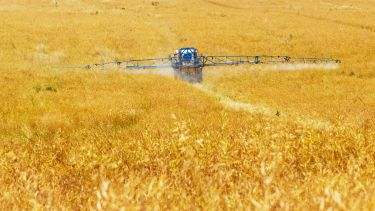In summer 2020, more than a million people signed petitions demanding that the UK Government protect food standards from a trade deal with Trump’s America. Led by farmers and celebrities, the uproar focussed on defending UK rules that prevent imports of chlorinated-chicken and hormone-fed beef.
However, little attention was paid to an equally concerning issue for British consumers – namely the major threat posed by trade deals to existing UK pesticide standards.
A year later and the furore over trade deals and food standards has largely died down, but the threat remains. As part of its attempts to pivot trade away from Europe, the UK Government has applied to join the Comprehensive and Progressive Agreement for Trans-Pacific Partnership (CPTPP), a huge trade deal between eleven countries, all with Pacific coasts.
But with a technical sounding name and no ‘bad guy’ like Trump to front it, the outrage from the media and public has all but disappeared. Meanwhile, like the US deal, CPTPP presents a considerable threat to UK food standards, including those designed to reduce harms caused by pesticides.
Like most trade deals, CPTPP pushes for member countries to align their rules and regulations in order to make trade between them easier. While far from perfect, UK pesticide standards are some of the strongest in the world in terms of protecting human health and the environment. This means that UK safety limits for the amount of pesticides allowed to appear in food tend to be stricter than in CPTPP member countries, and a pesticide is more likely to be banned in the UK due to concerns over the harms it causes.
While in an ideal world UK membership of CPTPP might force the eleven existing member countries to raise their pesticide standards, in reality trade deals tend to ‘align’ standards down. As a result, joining CPTPP could present a serious threat to the health of both UK consumers and wildlife.






